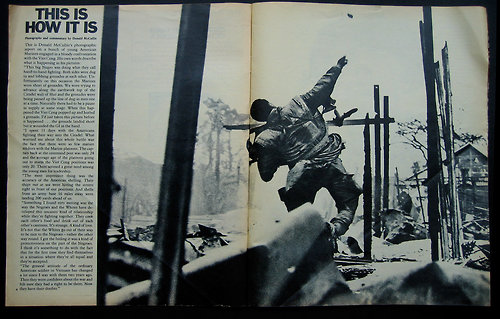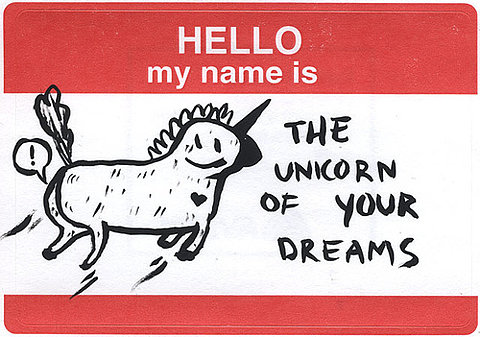
“A work of art is useless as a flower is useless. A flower blossoms for its own joy. We gain a moment of joy by looking at it. That is all that is to be said about our relations to flowers. Of course man may sell the flower, and so make it useful to him, but this has nothing to do with the flower. It is not part of its essence. It is accidental. It is a misuse.” – Oscar Wilde
Sport is an arena populated by human beings. Human beings are, by nature, given to success and failure, kindness and pettiness, acts of grace and acts of violence. Their actions result from the best of intentions, the worst and every shade of grey in between. This is, of course, true both on and off the field of play. None of that is news; we all know it, and yet so much of the conversation about sports seems to be dedicated to ignoring that fact. Moral outrage is the currency for transgression; the dialogue demands its pound of flesh from anyone “caught” at anything it is publicly decided they shouldn’t have been doing.
The problem, it seems to me, stems from our inability to reconcile the human actors in sports with the transcendence our following of said sports sometimes provides us, what Oil Can called applied aesthetic immanence. Moments of perfection, both big and small, get under our skin. A pitcher setting a batter up and then striking him out with a perfect changeup. Your favorite team winning the championship. A guard breaking his defender’s ankles. A breakaway holding off the peloton to win the day. We all have self-constructed buttons our fandom positions us to occasionally have pushed.1 The moments when you jump out of your seat, unable to keep from shouting and the quiet instants of knowing are what keep us coming back, keep us hooked to the games/matches/races. There is a purity at the core of this feeling, an unalloyed joy seldom allowed us anywhere else in life. Inside the moment(s) of immanence, context and contingency are swept away, unimportant, as we soak in all that we can.
1: The rarer it is that any given button gets pushed, the more import it gets. A thunderous dunk jolts you; a championship moves you. Cf. the graph in this post.

It is a betrayal of this feeling when we are reminded that the purity of an action is no guarantor of the purity of the actor. Even though the private lives and decisions of the moving parts in the setpieces of our transcendence are not our business and wholly unrelated to why and how we know them, we can’t help but care. Every morsel we learn about them informs a facet of their picture, making us feel like we have a more perfect knowledge of them and their game; when what we learn doesn’t square with the perfection of the moments we hold closest it’s easy to hold that against the athlete. If a player drives drunk or assaults someone, it has absolutely nothing to do with his game and skill on the court. There is no direct connection, but most of us nonetheless can’t shake the emotional connection we’ve constructed.
With our wall-to-wall media coverage of the famous, gotcha press tenor and the lifestyle afforded our stars by the money we indirectly pay them, the trap is continually set. Athletes will keep getting caught sleeping around on their wives, driving drunk, making poor decisions with firearms and violence and doing all of the petty, shortsighted and small things that humans as a data set will do. The same is true of any other profession, be it teachers/executives/postmen/etc, especially the rich. Any failings pros might have are compounded by a living in a bubble where every wheel is greased by money and/or fame. As Tiger Woods recently demonstrated so pyrotechnically, everything is for the taking at the top, right up until the instant it blows up in your face, be it because you went a step too far, made a stupid choice or just got unlucky. But for every guy whose cover gets blown, there are countless more who count their blessings it wasn’t their spot that got blown up.
Constructing an Echo Chamber

“In ‘punishing’ the debtor, the creditor participates in a right of the masters: at last he, too, may experience for once the exalted sensation of being allowed to despise and mistreat someone as ‘beneath him’—or at least, if the actual power and administration of punishment has already passed to the ‘authorities,’ to see him despised and mistreated. The compensation, consists in a warrant for and title to cruelty.” – Friedrich Nietzsche, The Genealogy of Morals
The sports media is responsible for public outrage. Everybody calibrates his or her own personal response, but we don’t get the luxury of doing it in a vacuum. When you read on the ESPN info scroll that someone is in trouble for something, you get to decide, consciously or not, whether that sets off any of your personal alarms. But to even get to that point, the story has already made it through the filter as newsworthy. If something happens and doesn’t get picked up, we don’t have a chance to get worked up about it. It’s the tree falling in the forest.
Once a story gets reported, it can vanish the next day or it can get shouted about for weeks. The gravity of the offense is certainly one of the factors here, but hardly the only one. Does it seem juicy? How famous is the player? What kind of relationship does the culprit have with the media?2 How does the transgression square up with the star’s public persona? What race is he?
2: Barry Bonds is by nearly all reports a world-class ass and would have people on his case no matter what, but don’t you think he would have gotten a bit more slack if he’d been a little friendlier in the locker room throughout his career? Contrast him to Tony La Russa, who was caught dead drunk and asleep in his car at an intersection, but who got off with a misdemeanor and an apology and whose story vanished from the news cycle. (Barry's trouble, of course, also stemmed from being an angry black man, not just one unfriendly to the media, and it sure didn't hurt Tony that he was a middle-aged white dude...)
The point is that the public reacts to what they’re told, how often they’re told it and how loudly it’s told. The sporting media is not even close to impartial, but its biases don’t seem to get taken into account when they tell us to get mad about something. We don’t seem to have any critical distance from the feedback loop of noise and outrage.
Now think about team and league responses. Players get fined/suspended and pr statements are put out variously supporting and damning players. Sometimes we’re asked to respect a man/family’s privacy in a time of personal trouble, sometimes the culprit is thrown under a bus. It would be nice if the calculus were that of guilt, severity and mitigating factors, but the truth is that the only calculations are money and public relations (also known as future money). The more a player is worth, the more everyone has their back. The more they’re a burden, the faster they get thrown to the wolves. If they’re unimportant, they either are made an example of or get no words at all. Why do you think Arenas is suspended right now for finger guns and Javaris Crittenton isn’t for chambering a round?
Signal and Noise

I have no outrage in me for the private failings of sports stars. If they break the law, I want them to face whatever punishment our legal system decrees fitting. If they break a league rule, I want them to be penalized as appropriate.3 Beyond that, I don’t care. Outrage is in vogue culturally at the moment, and this is no less true in sports than elsewhere. ESPN plays to this because people pay attention. Any time a player gets targeted for anything less than a monstrous act, though, I just end up feeling sorry for the player. Sure, Mark McGwire used steroids, and I’m all for rigorous testing, but so did 20-50% of baseball (roughly), so how is it fair to hold it against only him? Clean up the system, but don’t arbitrarily crucify anyone. All right, Tiger Woods slept around on his wife, but that’s not illegal, it’s just sleazy, and how is it our business? Gilbert Arenas is going to have to deal with his guilty plea; I don’t see how punishment beyond that is fair or should be up to us.
3: This is only really true as relates to competitive fairness. I wish players weren’t muzzled by the threat of fines when talking to the media. It would be a far more interesting sports world if players could always speak their minds.
The bottom line, for me, is this: I want my sports stars to play sports. What they do with their lives beyond that simply isn’t my business. If they do something with repercussions in sports, either because it physically gets in the way of them playing or because legal ramifications impede their career, that’s germane to my fandom and I’ll pay attention. But outside of that narrow window, I’d prefer to respect their privacy rather than play the morality police. It’s just not my damn business.

Well written, and i tend to agree. However, i think the media deserves a little more outrage directed at them, as do people who "think it is their business". Tiger Woods isn't doing the only thing i know or care about him for because of the media/social circus.
ReplyDeleteAlso, i think you could have accented the "juicy-ness" of the story. Drunk driving isn't juicy any more because it has happened so many times, sex will always be juicy, and the guns in the locker room shocked so many people that it became what it was, the j"uicy-ness" was there.
All in all, well written, i enjoyed it